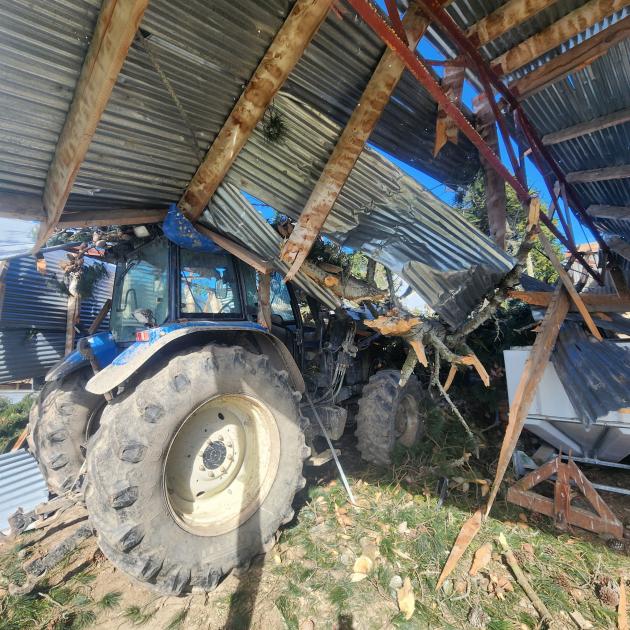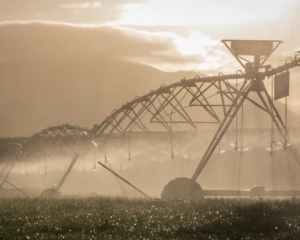
Farmers are still making repairs from the October 23 wind storm after losing irrigators, milk sheds, staff houses, hay barns, fences and trees.
Irrigation firms working hard to get twisted centre pivots back into operation are bringing parts into the country with some farmers relying on rain water and buying extra feed for animal grazing into at least early summer.
Culverden was among the harder-hit areas with dozens of centre pivots in the basin, despite farmers anchoring them. One farmer lost 27 of 35 spans on a centre pivot irrigator before the wild gusts on October 23 and five pivots were damaged on their other farm.
Rural insurer FMG has received more than 3000 claims expected to cost more than $28m from the wind storm.
A spokeswoman said about 1500 of the claims were from Southland, 700 from Otago and about 650 from Canterbury.
"We’re continuing to work to resolve claims as quickly as possible, with 10% of claims closed and over $1.5m already in communities."
Claims strategic operations head Jacqui McIntosh said more than 80 claims for irrigators had been made in Canterbury.
"We know how important it is to get these repaired or replaced so we’re working quickly to resolve claims."
She said FMG was working closely with irrigator companies to provide information so they could order parts.
Federated Farmers dairy chairman Karl Dean said irrigation companies were making repair plans and ordering parts, but some farmers would be without centre pivots beyond December.
"If the parts are available now they may be fixed sooner, but if they are having to wait for parts to be ordered into the country it will take time. There was talk of January, February, March sort of time which is not surprising with the amount of extensive damage that happened."
He said farmers were grateful for the good rain in mid-November and faced buying outside feed to keep animals fed.
"Some of the farms in the Culverden area were cutting silage because we got that rain and that did mean they could make some surplus feed which will help them weather some of the dry, not all, but hopefully enough until they can actually get up and running again."

"The payout is slowly coming down a little bit unfortunately based on the last couple of GDT results as it always does when there is a good year. I would expect that the payout range will narrow as it always does in December and that mid-point may drop and hopefully it won’t drop too much, but we won’t know until Fonterra makes that announcement and, of course, everyone else will follow."
An inland strip in Culverden was one of the worst affected by the storm.
Wild winds arrived at close to the peak of milking and when sheep and beef farmers were busy with calves and lambs.
Visibility was down to one to two metres when the wind was at its strongest with some farmers unable to make their way back safely to homes 150m away because of flying sheet iron and other material.
Toppled trees made it impossible for others to access drives to houses or cow sheds.
Contractor teams were continuing to fix damaged housing, cow sheds and essential effluent irrigators.
Mr Dean said fencing contractors were in heavy demand to fix fencelines, while a major clean-up was continuing on dryland sheep and beef properties.
North Canterbury Rural Support Trust chairman Stuart Wright said the ongoing lack of irrigation would continue to be felt.
Hurunui farmers were well prepared with tying irrigators down, but this was no match for the winds when they started flexing and jumping, he said.
"Obviously there is property damage around trees and buildings, but the one that will have the biggest impact is irrigators. It is very patchy up there but Rotherham and Balmoral were among areas to get really hammered with those irrigators. The irrigation companies are working really hard to get the gear here, but it could be a while before those irrigators are up and running."
He said the trust’s response teams had worked with other emergency services to assess damage and pass on reports to decision makers such as the Ministry for Primary Industries and district councils.
Taskforce Kiwi crews from the veteran-led disaster relief charity had helped initially in an emergency response to clear trees so rural people could access homes and power companies had done a great job returning power, he said.
Mr Wright said the rural trust was always there if farmers needed support.














